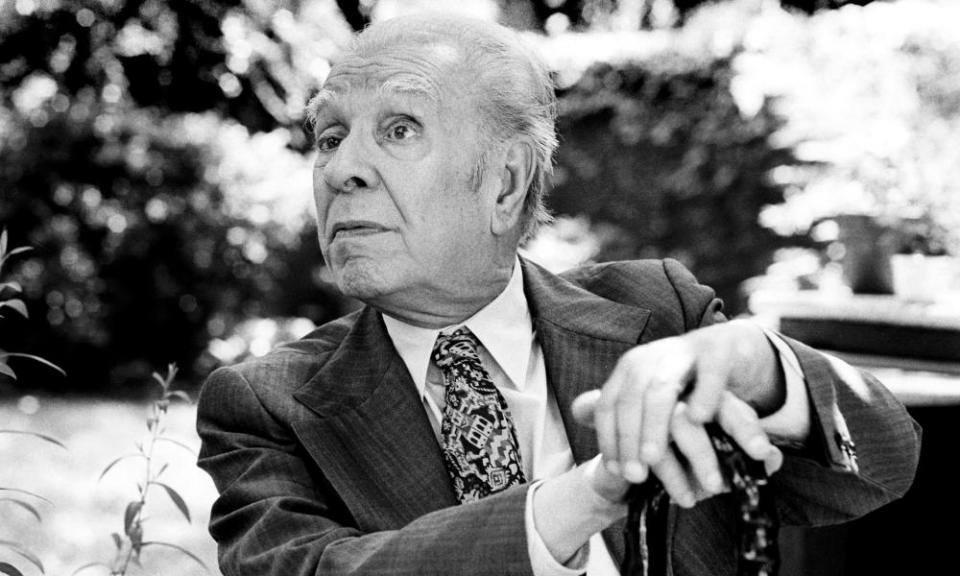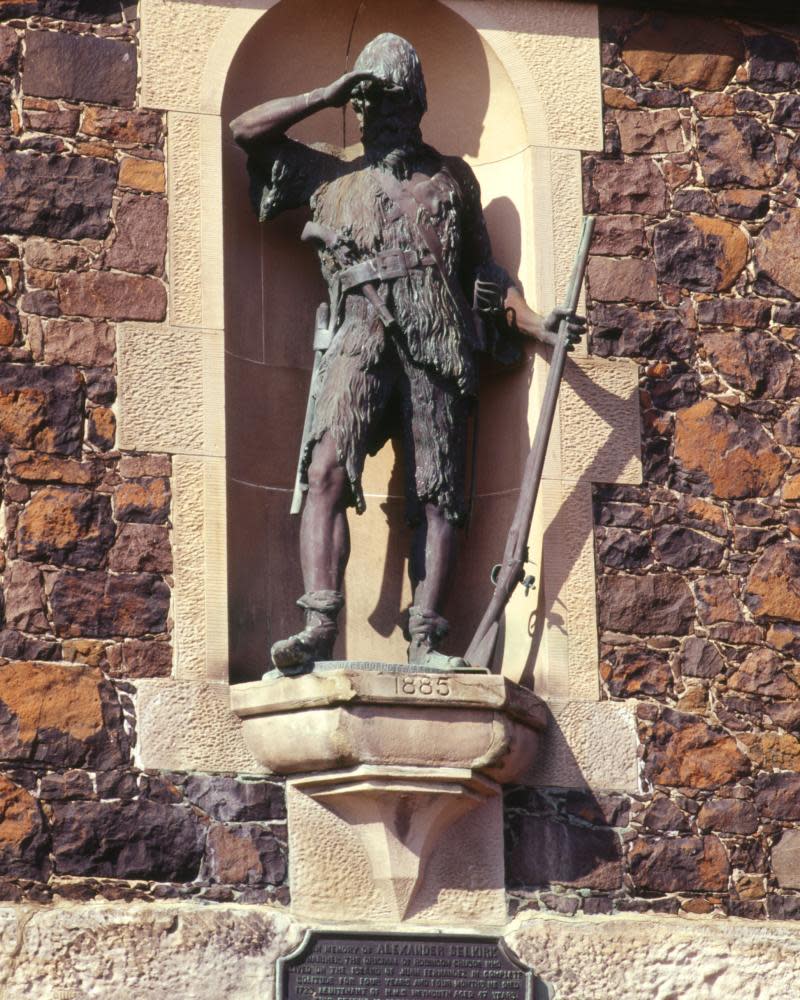Borges and Me by Jay Parini review – around Scotland in a Morris Minor

Jorge Luis Borges’s short story “Borges and I” is typical of the writer. Erudite and elliptical, succinct and self-referential, passionate and puzzling. In just a few closely packed pages, the Argentinian essayist and master storyteller links the prose of Robert Louis Stevenson with the soul of Julius Caesar, via London brothels and arched entrance halls, past strumming guitars and sword-slain kings, before ending at the feet of God himself. “I have dreamt the world as you dreamt your work, my Shakespeare, and among the forms in my dream are you, who like myself are many and no one.” So speaks the Lord from a whirlwind. Or is it Borges from his desk? Either way, “discuss”.
In this endearing, joyous, sharply written book, Jay Parini sets out to do precisely that: to take up his pen and discuss Borges, a winner of the Nobel prize and a Latin American literary giant. Despite its deceptively simple prose, Borges’s work defies ready explanation or – at times – even ready understanding. He took pleasure in flummoxing. Mercifully and rather marvellously, Parini embarks on his task not as a critic but as an actor. In classic Borgesian style, he opts to write himself into his own drama. Borges and Parini, master and student, driving around the Highlands of Scotland in a battered candy-red Morris Minor, the one blind, the other “shy and often terrified”, both lost in their own mazes, both open to the world.
Parini, a US novelist, academic and literary biographer, is not writing from a blank page. Fifty years ago, as a draft-dodging doctoral student in St Andrews, he met Borges in the flesh. The writer was briefly visiting the UK to collect a prize and give various lectures. He came to Scotland, in small part, to meet a certain Mr Singleton, a specialist in Anglo-Saxon riddles from Inverness. When Borges’s host was called away at short notice, Parini bravely stepped into his shoes as guide and aide. Thus began the start of a riotous, week-long jaunt through the Scottish hinterland.

Read at face value with none of the above context, Borges and Me (the Parini version) provides an action-packed caper littered with cinematic resonance. The script, in a Tom-Sharpe-meets-Mr-Bean sort of way, almost writes itself. In the passenger seat is the elderly, slightly dotty writer, “a lover of labyrinths and mirrors”. Dressed in an oversized suit and a powder-blue tie “full of orange waterfalls, flying fish, and the residue of many meals”, Parini’s Borges is a constant babble of words and ideas, overflowing with impish humour and an encyclopedic knowledge of global literature (he used to be director of Argentina’s National Library). Behind the wheel, in contrast, is the young, angst-filled Parini, the hapless Sancho to Borges’s Don Quixote, as confused as he is enchanted by his impulsive, Delphic charge.
The pair lurch from one near-miss disaster to another, overturning their rowing boat on Loch Ness, falling into ditches (Borges), vomiting on ferries (Parini), stumbling into the second battle of Culloden. Parini supplies a ready cast of secondary characters, all of whom, like him, are left wrong-footed by Borges’s eccentric brilliance. The doubting priest, for instance, who is reduced to tears when the multilingual foreigner recites a Latin blessing. Or the librarian who looks on with “centuries of disapproval” when the sightless Borges takes a book and starts licking its leather spine.
Their night at the B&B of the widowed Mrs Braid in Killiecrankie (a Gaelic place name “with vowels expanding like an accordion”) offers a flavour of the duo’s escapades. Not only is the first “B” in “B&B” just that – a lone, narrow double bed – but it only has one toilet, which happens to be in Mrs Braid’s bedroom. Borges’s three pints at dinner mean “all bets are off”. During a bladder-disturbed night, the two talk confessionally of lost loves and life’s regrets. Lying there, Borges beside him in yellow satin pyjamas with his scent of sour sweat and “unfamiliar lotions”, Parini asks himself a question that has clearly bemused him ever since: “How on earth had I landed in bed with an elderly, loquacious blind man in a remote village in the Scottish Highlands?”
'How on earth had I landed in bed with an elderly, loquacious blind man in a remote village in the Scottish Highlands?'
A lesser writer would have left it there. Some witty anecdotes, embellished over time and polished by the retelling. “That time when Borges and I …” Not Parini. He doesn’t discuss his subject as much as describe him – his character, his ideas, his literary spirit. The twentysomething Parini had hardly heard of Borges, let alone read him. So his older, better-informed self returns to the past to educate him, using the repartee of a chatterbox Borges to do so. It is a clever conceit, carried off with wonderful verve and lightning wit.
At one stage, Parini’s Morris Minor (nicknamed “Rocinante” by Borges after Don Quixote’s half-starved horse) trundles into Lower Largo, home of Alexander Selkirk, the marooned buccaneer who inspired Defoe’s Robinson Crusoe. “Writers are always pirates,” Borges remarks in passing, “marauding, taking whatever pleases them from others, shaping these stolen goods to our purposes.”
Borges and Me is, in this sense, a book of elaborate piracy, its author plundering memory and literary imagination to create a vivid, touching travel memoir that races along with fantastical delight. The result is an elaborate tribute to the master of impossible realities – and huge fun, to boot.
• Borges and Me: An Encounter is published by Canongate (£14.99). To support the Guardian and the Observer buy a copy at guardianbookshop.com. Delivery charges may apply.

 Yahoo Movies
Yahoo Movies 